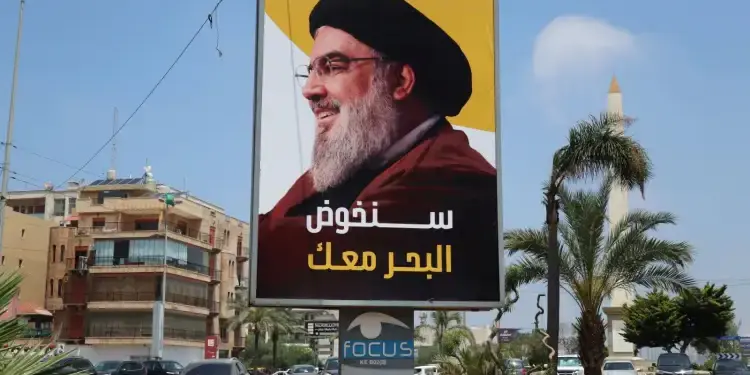The Lebanese Hezbollah confirmed, this Saturday, September 28, 2024, the death of its chief, Hassan Nasrallah, whom Israel said he had killed the day before in a shot on the southern suburbs of Beirut.
“Sayed Hassan Nasrallah joined his martyrs (…) whose walking he led for almost thirty years,” a statement Hezbollah announced.
The Israeli army had announced earlier, this Saturday having “eliminated” the Hezbollah chief in a strike the day before on the HQ of the organization in Beirut.
After massively bombing the southern suburbs of the Lebanese capital on Friday, Israel did this announced this morning.
Early this morning, the Israeli army continued to intensely pound the southern suburbs of the city, bastion of Hezbollah. Several Hezbollah chiefs were killed. According to a provisional assessment of the Lebanese authorities, the Israeli attack left six dead, 91 injured and destroyed dozens of buildings.
Who is Hassen Nasrallah
Born on August 31, 1960, Hassan Nasrallah was from the village of Bazouriyé in southern Lebanon. As a teenager, he studied theology in the Shiite holy city of Najaf, Iraq.
Back in Lebanon, he engaged in the Shiite Amal movement, but seceded during the Israeli invasion of Lebanon in the summer of 1982 to be part of the founding nucleus of Hezbollah, created under the impetus of the Guardians of the Iranian Revolution.
Enemy sworn in Israel, he lived in hiding for many years to escape the Hebrew state. It has therefore only rarely appeared in public since the war which opposed its movement to the Israeli army in the summer of 2006.
Hassan Nasrallah was the charismatic leader of Hezbollah since 1992, when he succeeded Abbas Moussaoui, murdered by Israel.
Then, he patiently changed Hezbollah, armed and funded by Iran, in an essential political force, represented in Parliament and the government. At the same time, he developed the arsenal of his training, which, according to him, had 100,000 fighters, and had powerful weapons, including high precision missiles.
Considered the most powerful man in Lebanon, he was the subject of a true cult of personality among his faithful, in particular within the Shiite Muslim community from which he was from.
The War of the summer of 2006 with Israel, which lasted 33 days, allowed it to display the power of its movement, its fighters staring at the Israeli army. The conflict caused the death of 1,200 Lebanese, mostly civilians and 160 Israelis, mostly soldiers.
Hassan Nasrallah increased Hezbollah’s influence not only in Lebanon, but also in the region. In 2013, he announced that he had intervened militarily in neighboring Syria to support the regime of Bashar al-Assad.








